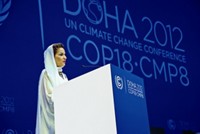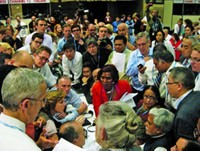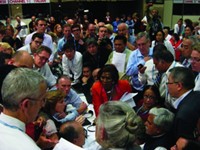Advertisement
Grab your lab coat. Let's get started
Welcome!
Welcome!
Create an account below to get 6 C&EN articles per month, receive newsletters and more - all free.
It seems this is your first time logging in online. Please enter the following information to continue.
As an ACS member you automatically get access to this site. All we need is few more details to create your reading experience.
Not you? Sign in with a different account.
Not you? Sign in with a different account.
ERROR 1
ERROR 1
ERROR 2
ERROR 2
ERROR 2
ERROR 2
ERROR 2
Password and Confirm password must match.
If you have an ACS member number, please enter it here so we can link this account to your membership. (optional)
ERROR 2
ACS values your privacy. By submitting your information, you are gaining access to C&EN and subscribing to our weekly newsletter. We use the information you provide to make your reading experience better, and we will never sell your data to third party members.
Environment
Agreements Emerge From Cancún Talks
Climate Change: Deals on forest protection, adaptation fund seen as showing global negotiations still viable
by Cheryl Hogue
December 13, 2010
| A version of this story appeared in
Volume 88, Issue 51
Global talks on climate change appear to be back on track but moving slowly, as demonstrated by modest agreements emerging from a two-week United Nations meeting in Cancún, Mexico.
Governments on Dec. 11 completed a deal for protecting woodlands in developing countries, thus slowing greenhouse emissions from deforestation and fostering tree growth to strip carbon dioxide out of the atmosphere. They also agreed to create a fund to assist developing countries adopt low-carbon-emitting energy technologies and adapt to the effects climate change, such as predicted changes in precipitation patterns. But they left hanging the question of where the money will come from.
Negotiators left this funding issue and the hotly contended topic of legally binding greenhouse gas emission cuts, which derailed global climate talks last year in Copenhagen (C&EN, Jan. 11, page 27), for future discussions.
In Cancún, the prospects for a new global climate treaty became more complicated after Japan and Russia announced that they won't sign up for a second round of emission cuts under the Kyoto protocol. That 1997 climate treaty requires industrialized countries to, on average, cut their emissions of greenhouse gases an average of 5% below 1990 levels between 2008 and 2012. Japan said it would rebuff further emission curbs for itself after 2012 as long as countries with greater releases of greenhouse gases remain without legally binding emission controls.
The U.S. is one of those countries. Historically the world's largest emitter, the U.S. rejected the Kyoto protocol. Negotiators have sought for years to work out a climate deal the U.S. would accept, to no avail thus far.
Meanwhile, many governments want large developing countries – notably China, India, Brazil, and South Africa – to adopt emission-control regimes too. China's burgeoning releases of greenhouse gases recently surpassed those of the U.S.
Environmental and other groups see the modest outcomes of the Cancún meeting as demonstrating that global talks on climate have stabilized a year after the meltdown in Copenhagen.
"There is no outright cause for celebration, but at least we heave a sigh of relief," says Poul Erik Lauridsen, climate change advocacy coordinator for CARE International, a humanitarian aid agency. The modest agreements emerging from Cancún show that UN-sponsored climate talks are still viable.
"Cancún may have saved the process but it did not yet save the climate," says Wendel Trio climate policy director Greenpeace International, noting that greenhouse gas emissions continue to rise.
Negotiators will take their next stab at hammering out a new climate treaty at a meeting scheduled for Nov. 28 to Dec. 9, 2011, in Durban, South Africa.





Join the conversation
Contact the reporter
Submit a Letter to the Editor for publication
Engage with us on Twitter